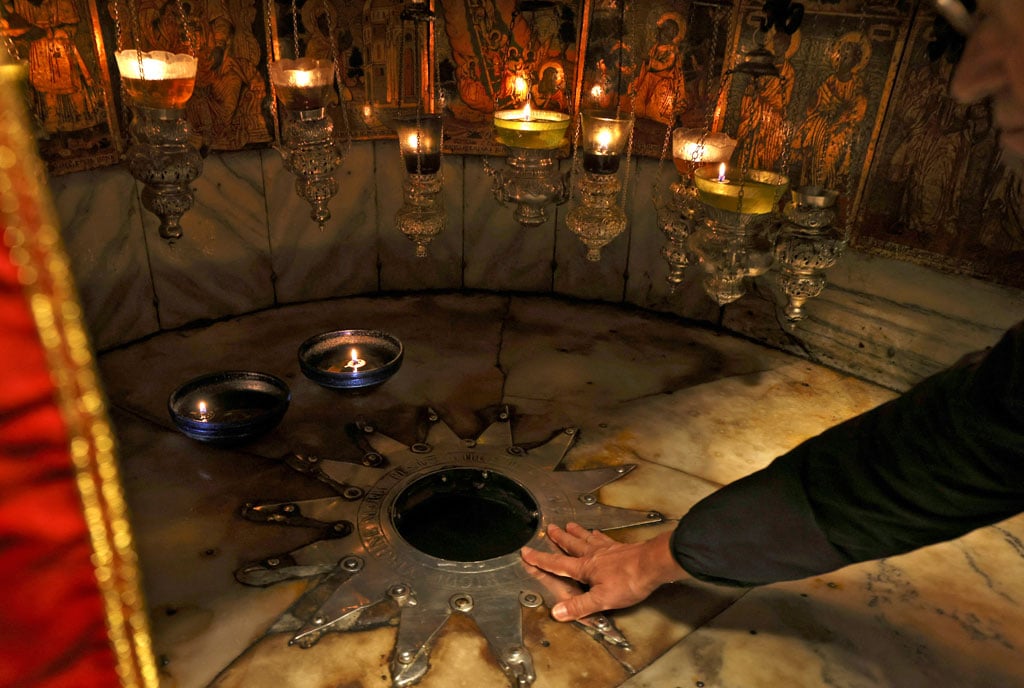Jesus is the eternal Word of God

A pilgrim reaches for the grotto, believed to be the site of the birth of Jesus, at the Church of the Nativity in the biblical city of Bethlehem in the occupied West Bank during an Advent season visit on December 13, 2022. PHOTO/FILE/AFP
What you need to know:
- The word. In these days, God has spoken to us in His Son, the Eternal Word, who enlightens all men/women, so that He might dwell among them and reveal His innermost being, writes Msgr Wynand Katende.
“Heaven and earth will pass away, but my words will never pass away.” (Matthew 24:35). This means, God’s Word is an infinitely more concrete reality than the material universe. The phrase “Word of God” refers to three, distinct yet inseparable aspects: Jesus Christ, Sacred Scriptures and the Living Tradition of the Church.
God, the beginning and end of all things, can be known with certainty from created reality by the light of human reason. But it is through God’s revelation that those religious truths which are by their nature accessible to human reason can be known by all people with ease, with solid certitude and with no trace of error (Romans 1:20).
In His goodness and wisdom God chose to reveal Himself and to make known to us His hidden purpose. Through Christ, the Word made flesh, we have, in the Holy Spirit, access to the Father and are able to share in His divine nature (Ephesians 1:9). The invisible God, out of the abundance of His love speaks to us as friends and lives among us; inviting and taking us into fellowship with Himself (John 1:14).
Through the patriarchs: Abraham, Isaac, Jacob, Moses and the prophets, God taught people to acknowledge Him as the one living and true God, provident Father and just judge. He likewise, taught them to wait for the Saviour promised by Him, and prepared the way for the Gospel down through the centuries. Now, at last in these days, God has spoken to us in His Son, the Eternal Word, who enlightens all men/women, so that He might dwell among them and reveal His innermost being (Hebrews 1:1-2).
Through His teaching and deeds/miracles, Jesus confirmed that God is with us to free us from the darkness of sin and death, and to raise us up to life eternal. We now await no further new public revelation before the glorious manifestation of our Lord Jesus Christ, at the end of time. Meanwhile, we are invited to offer with the full submission of intellect and will, to the truth of God’s Word.
At the close of His mission, Christ commissioned the Apostles to preach to all nations that Gospel which, is the source of all saving truth and moral teaching (2 Corinthians 1:20). The Apostles fulfilled by the commission by word of mouth and writing, under the inspiration of the Holy Spirit (2 Thessalonians 2:15).
Sacred Scripture and the Living Tradition of the Church form one sacred deposit of the word of God, committed to the Church. The Living Tradition of the Church refers to the faithful and constant transmission of the teachings of the Apostles from one generation to the next (1 Thessalonians 2:15).
In composing Sacred Scripture, God chose people, who made use of their powers and abilities, so that with the Holy Spirit acting in them and through them, they, as true authors, committed to writing everything and only those things which He wanted. Sacred Scripture must be acknowledged as teaching solidly, faithfully and without error that truth of God’s word, for the sake of our salvation (2 Timothy 3:16-17).
In Sacred Scripture, the words of God, have been expressed in human language and social milieu, just as the Word of the eternal Father, when He took to Himself the flesh of human weakness, was in every way made like us, except sin. Hence, the truth and holiness of God always remains intact.
The task of authentically interpreting Sacred Scripture and the Living Tradition, has been entrusted exclusively to the Church, whose authority is exercised in the name of Jesus Christ. The Church is able to faithfully do this with the help of the Holy Spirit.
Sacred Scriptures and the Living Tradition provide the perpetual foundation of sacred theology, pastoral preaching and Christian instructions. The Church’s growth in the life of the Spirit is strengthened through prayerful and reverent reading of the word of God.
Psalm 119:89 sums-up: “Your word, O Lord is eternal; it stands firm in the heavens.”
Did you know?
In Sacred Scripture, the words of God, have been expressed in human language and social milieu, just as the Word of the eternal Father, when He took to Himself the flesh of human weakness, was in every way made like us, except sin.





